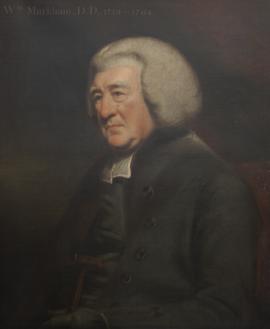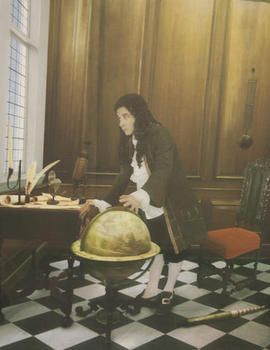- GB-2014-WSA-01165
- Person
- 1664-1721
PRIOR, MATTHEW, son of George Prior, St.Stephen’s Alley, Westminster, joiner, and Elizabeth ---; bapt.St.Margaret, Westminster 2 Aug 1664; at school under Busby three years; left after reaching the middle of the third form to assist his uncle Arthur, a vintner, at the Rhenish Wine House, Channel Row, Westminster; returned to the School under the patronage of Charles Sackville, 6th Earl of Dorset (qv); KS 1681; St.John’s Coll.Cambridge, adm.pens. 2 Apr 1683, scholar 1684, matr. 1683; BA 1686/7; MA 1700; Keyton Fellow, St. John’s Coll. 5 Apr 1688; author of The Hind and Panther transvers’d to the Story of the Town and Country Mouse, 1687, written as a reply to Dryden; Secretary to Embassy, The Hague 1690-7; employed as Secretary in negotiations resulting in the Treaty of Ryswick 1697; Chief Secretary to Lords Justices of Ireland May 1697 – Nov 1699, but did not execute duties of post; FRS 23 Mar 1697/8; Secretary to Embassy, Paris 1698-9; author, Carmen Saeculare, 1699; Under Secretary of State, Southern Department May 1699 – Jun 1700; a Commissioner of Trade 1700-7; MP East Grinstead Feb – Nov 1701; joined Tories on accession of Queen Anne; a Commissioner of Customs 1712-4; went to Paris to negotiate peace Jul 1711, subsequently acting as Minister Plenipotentiary there; the Treaty of Utrecht, signed 11 Apr 1713, was familiarly known as “Matt’s Peace”; impeached by Walpole and imprisoned 1715-7; his Poems, published by subscription in 1719, earned him 4000 guineas; presented by his patron Edward Harley, 2nd Earl of Oxford (qv), with £4000 for the purchase of Down Hall, Essex; possessed aptitude for business and a knowledge of commerce; Thackeray described Prior’s as “amongst the easiest, the richest, the most charmingly humorous of English lyrical poems” (English Humourists, 1866, 175); d. 18 Sep 1721, buried Westminster Abbey, at his desire “at the feet of Spenser”; DNB.


